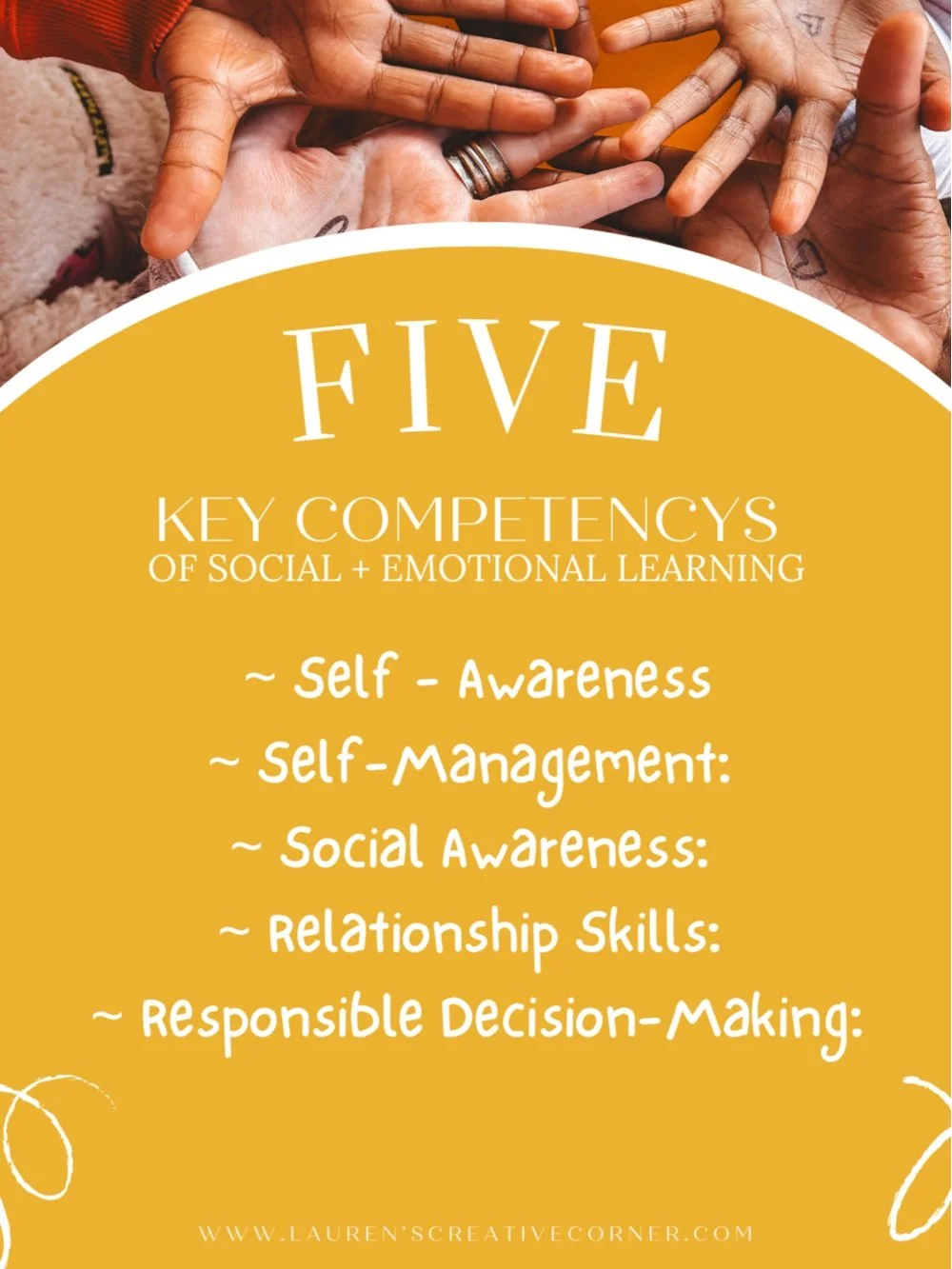Growing Hearts + Minds: Why Social-Emotional Learning is Essential for Every Child
As a child-centered art + art therapy teacher working in Kenya, I’ve had the privilege of seeing firsthand how powerful social-emotional learning (SEL) can be for children.
Social-emotional learning is more than just a buzzword; it's the process through which children develop essential skills to recognize and manage their emotions, build positive relationships, make responsible decisions, and show empathy toward others. These are the building blocks that foster both inner peace and meaningful connections with the world around them.
But what exactly does this mean, and why is it so important?
What is Social-Emotional Learning (SEL)?
At its core, SEL teaches children to understand and regulate their emotions, build relationships, and navigate social environments with confidence and care. It's about learning how to recognize feelings like joy, frustration, or anxiety, and finding healthy ways to express and cope with those emotions. SEL also emphasizes the importance of empathy—seeing the world through another person’s eyes—and encourages children to respond with kindness and respect.
In SEL, children develop five key competencies:
Self-Awareness: Understanding their own emotions, strengths, and areas of growth.
Self-Management: Regulating emotions, behaviors, and managing stress.
Social Awareness: Appreciating diversity and showing empathy for others.
Relationship Skills: Building positive connections and resolving conflicts constructively.
Responsible Decision-Making: Making thoughtful choices, considering the well-being of themselves and others.
These skills may seem simple, but they are profound tools that children carry with them into adulthood.
Why is SEL So Important for Kids?
Children who engage in social-emotional learning develop a stronger sense of self. They learn to navigate life’s challenges with resilience, which can improve academic performance, reduce anxiety, and help them build healthier relationships with peers and adults.
Imagine an older child who, instead of lashing out in frustration, can recognize their feelings: “I’m feeling upset because I don’t understand this math problem.” This child is better equipped to handle life’s ups and downs, not because the challenges go away, but because they’ve learned how to approach them with patience, understanding, and self-compassion.
SEL also empowers children to develop a deep sense of empathy. In a world where many children feel disconnected, the ability to step into someone else’s shoes and respond with kindness can build stronger communities. Whether they’re at school, at home, or out in the world, children who understand empathy naturally create more inclusive and supportive spaces.
SEL in Action
As a therapist and educator, I often see the transformation that comes when children are given the tools to process their feelings. In our art table sessions, for example, children who may have struggled to verbalize their emotions can express them through drawing or painting. This creative process gives them a safe space to explore what’s going on inside, and helps me, as a guide, offer the support they need to find balance.
There’s a magic that happens when children feel understood—when they learn that it's okay to feel angry or sad, and that those emotions are part of being human. SEL provides that understanding, offering kids not just coping mechanisms, but a deep sense of belonging and safety in themselves.
The Takeaway
Social-emotional learning is at the heart of every child’s journey to becoming a well-rounded individual. It helps children build emotional strength, cultivate healthy relationships, and engage with the world through compassion and respect. It lays the foundation for future success, not just academically, but as caring, responsible, and self-aware individuals.
When we take the time to nurture the emotional well-being of our children, we’re not only helping them succeed in school or on the playground; we’re giving them the tools they need to thrive throughout their lives. As we continue to create spaces that prioritize SEL, we give our children the gift of inner peace, resilience, and a brighter, more connected future.
